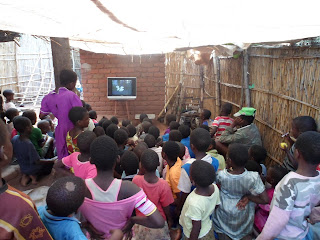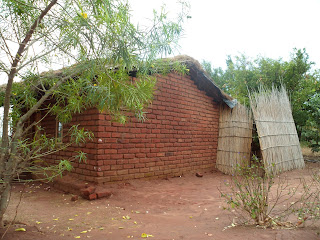Today I received the New Information Pack to volunteer in Malawi from Joshua Mbozole, the coordinator in Malawi. (Will try to uploaded or share the link here in the next post)
Joshua is the creator of Tikondwe Youth Organisation and a member of the family that host all the volunteers during our stay and look after all us so well. Our beloved Papa and Mama!. Joshua is one of Papa and Mama's sons. He is working really hard to help his community and thanks to that the projects is achieving important improvments and even small new projects are growing too.
 |
| Dear Papa and Mama. Last morning at Napwanga village :( |
 |
| Joshua Mbozole, project founder and Eveline, his wife |
One very good new is that one of the volunteers I met there, Emma, is staying longer at Domasi and has took over the Foreign Project Coordinator role, that previously did Jessica, thanks Emma!
Below you can see a photo of the family I was living with. From left to right: Eluby (my Malawian sister), Matrida, Efort, with the school uniform, and Moses, Eluby's husband. Eluby is Mama and Papa's daughter and Joshua's sister.
This was my last morning in the village.Quite difficult to smile for the picture...
 |
One of the aims of Tikondwe Youth Organisation is to build an orphanage to gather all the orphans that at the moment live with any relative left or families from the village. So they could be controlled regarding feeding, health and education. But of course they need a quite a lot of money for that and need any help from all us.
Time for one loving story now. It happened my last day in the village and is about a cute baby and her mum. First day I arrived at the village I had a picture with a new born. They love you to have pictures with their babies. Well, my last day at Napwanga village the mum was waiting for me with the baby, a gorgeous girl, and asked me to have a picture myself with her baby. When I was going to take her in my arms her mum removed the piece of garment that wrapped the baby and underneath the baby was wearing a very nice dress. Her mum dressep her up for the special occasion. So tender... Here you have the photos:
 |
| The new born my first day int he village |
 |
| The baby two months later |
I want to show you how Malawian toys look like with a picture: Have a look at the car?
It is made from the local beer carton and the wheels are the caps from coke and fanta bottles.
The kid with the car was so lovely, he hold my hand all the way to the market and back. They all came with us. We were just walking on the street and this is how it happens, so you end up walking with a bunch of children, even adults. No words... Love them all!
 |
| Taken at Cape Maclear (lake Malawi) |
 |
| Fundraising in Spain for my Malawian children |
Love and solidarity with Malawi for this New Year 2012.
Thanks- Gracias- Zikomo












































